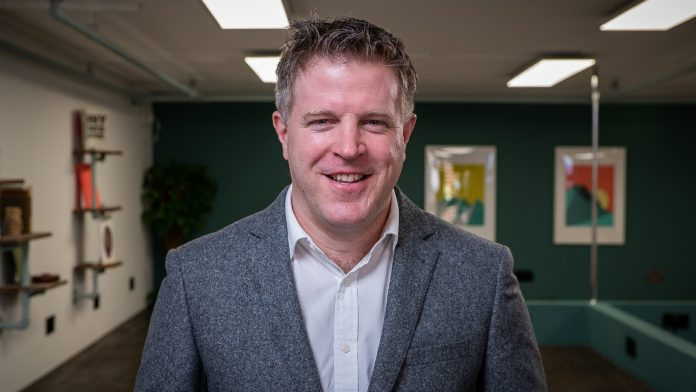Notwithstanding the devastating human turmoil and hardship, the global C19 pandemic has driven the single-biggest and most sustained disruption of business in living memory. It has forced organisations to be introspective as they adjust to the new normal and assess their biggest and most important assets. Almost always these will be their people.
Perhaps one of the lasting legacies of Covid-19 will be that organisations appreciate that their strength, ability to pivot and be agile, drive internal accountability and entrepreneurial mindsets, depend on the strength and skills of their people. If an organisation can develop a resilient, skilful workforce that is empowered to think for itself, and focus on delivering customer-centric value, disruption isn’t a death knell, but rather an opportunity.
There’s certainly no shortage of studies and reports about what future skills need to look like. When debating these fourth industrial revolution (4IR) skills, everyone agrees that there will be jobs in the not-so-distant future that we have not even imagined yet. Adapting to that requires a specific type of employee in a specific type of business.
The South African government, like others around the world, has recognised the pressing need to drive a coordinated approach to equip the youth with 4IR skills. Just last October, Minister of Communications and Digital Technologies Stella Ndabeni-Abrahams said in a UN and AU keynote address that governments “should make sure they come up with strategies in terms of human capacity development and investing in STEM”.
Even before the pandemic, in 2018, the ministry highlighted the shortage of data scientists and announced plans to train one million data scientists by 2030. Irrespective of whether these goals can or can’t be achieved, it signals an acute awareness that skills need to keep pace with a rapidly evolving world.
Naturally, there will be a strong demand for IT skills, which are already in short supply, such as capabilities around coding, data, cloud computing, security, artificial intelligence (AI), machine learning (ML), business intelligence (BI), and much more. Organisations throughout the continent, including Mukuru, have various plans and programmes in place to broaden the IT skills talent pool.
However, that’s only half the story. Certainly, for the foreseeable future, it is widely accepted that machines will lack the nuance that is natural in humans, such as emotional intelligence and reading between the lines, between what is said and what is meant. These human skills, including strategic thinking and nuanced problem solving, are inherent in leadership and crucial in a modern organisation.
What does this mean? It means that the ideal situation is one where a business has a workforce with the requisite skills – be these in IT, finance, sales, or any other department. This workforce stays abreast of developments and continues to be upskilled, but it also has critical thinkers and leaders that populate the various levels of the organisation. Together with an open culture – one of understanding that the best ideas are sometimes born in the least likely places – they can action rapid, and decisive, responses to just about any disruption. Technical skills ensure the work can be done while the soft, human skills, ensure the right work is done.
Africa is blessed with a particular type of resilience. On this continent, we have an entrepreneurial mindset that looks for opportunity in the face of adversity. We have witnessed generational jumps in technological innovation driven by pressing needs around financial inclusion, food security, physical security, and more. Being able to harness this, and formalise the can-do attitude, is golden for an organisation seeking to navigate the current disruption and future-proof itself for whatever surprises the 4IR brings.
How does one develop this future employee? A good starting point is working towards developing a meritocracy with capable people who are self-starters. These are people who pull themselves up by their bootstraps – cognisant that the business empowers them and backs them – and look for opportunities to learn and make decisive moves. There must be a healthy balance between the freedom to be vulnerable and the self-confidence to work towards solutions.
Businesses have a responsibility to develop these self-starters. When employees see a company making an effort to invest in their skills, they appreciate that the relationship is symbiotic. Their personal growth becomes their own asset. From experience, the sense of feeling valuable, of being empowered to grow, results in higher levels of staff engagement, which makes cultivating the right culture that much easier. If people are highly engaged and embedded in the company culture they will see opportunities for their careers, and when this happens there will be less employee churn.
Essentially, you want a situation where an employee walks in seeking a job and ends up with a career. Personal development programmes should provide employees with a roadmap to achieve their own personal aspirations. By way of analogy, our Mukuru Learning Academy works from a centralised hub where the core DNA of the business is standardised, but different regions and different departmental material are nuanced and shaped, so it is relevant to the staff engaging in the learning. It serves a clear purpose in their individual personal development programmes. These types of programmes need to be responsive and relevant.
Fundamentally a healthy mix between hard skills in formalised training modules, whether in-house or with partners, and the teaching of softer traits such as leadership skills through mentorship programmes need to exist. Leadership and the application of judgement in decision-making are where we, as humans, will have the one-up on the machines for many more years to come. The pandemic’s course around the world and the success of various responses, from national to business to personal, has come down to how these traits have been applied, to then unleashed (or not) the requisite skills to execute.












